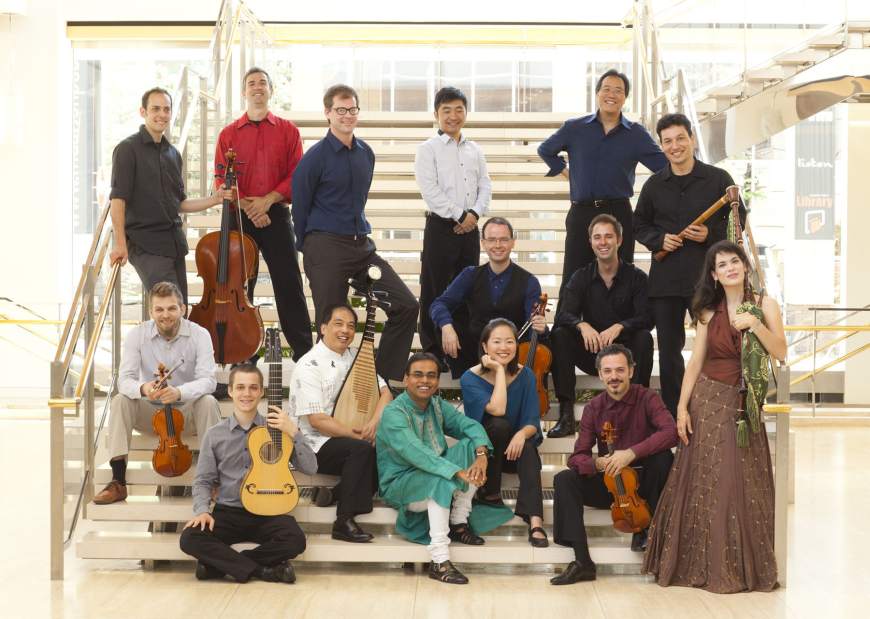Silk Road Ensemble makes its way to Pittsburgh
The path for the Silk Road Ensemble finally reaches Pittsburgh this month, 15 years after it was formed by cellist Yo-Yo Ma.
The group embodies in its members and repertoire the cross-cultural exploration and exchanges made possible by the historic route from Europe to Asia so famously and profitably pursued by Marco Polo.
Ma likes to say the Silk Road was the Internet of antiquity. The music his group offers is not so much an ethnomusicological sampling of cultures as syntheses by high-level musicians, each of whom pursues his or her interests apart from the group.
The Silk Road Ensemble will make its Pittsburgh debut Feb. 25 at Heinz Hall, Downtown. The 17 musicians who will perform include Ma on cello.
The concert will open with “Side In Side Out” by Kojiro Umezaki, which was requested by his colleagues as a full-ensemble piece. He's a Japanese-Danish performer and composer whose wife is from Wheeling, W.Va.
Umezaki plays the shakuhachi, an end-blown Japanese bamboo flute. The instrument's name means its length, about 1 foot, 8 inches. He says it's very different from Western instruments, where the goal is even tone and timbre for all pitches to level the playing field between them.
“Playing the shakuhachi, you take advantage of the asymmetry of the pitches and what the bamboo gives you. For me, it's an instrument about constraint,” Umezaki says.
“Side In Side Out” uses music by Toru Takemitsu and Gustav Mahler, and from Kabuki theater and popular genres.
“From this veritable jumble of material,” Takemitsu writes, “the piece reaches forward to lesser-explored pathways for instruments centuries-old and emerges as a kind of letter, in music, written at times with nothing but joy and at times with the most intimate of thoughts one could share with all who are present.”
The concert will feature the premiere of the “Latina 6/8 Suite” by Edwin Perez, which explores the way music written in six eighth-notes per measure is realized in different cultures. It includes music he composed and traditional music he selected.
“Latina 6/8 Suite” was commissioned by Cristina Pato for her album “Latino,” which will be released in the late spring. Pato plays gaita (Galician bagpipes) in the Silk Road Ensemble. She also is a pianist and composer.
The idea arose one time when she was playing a muineiera, the traditional Galician 6/8 dance, with the bass player in her band.
“It was really nice, but it wasn't Galician. Afterward, we talked, and he told me he used some joropo, a Venezuela dance in 6/8. I started exploring the different ways just one rhythm has been used in so many countries. The tarantella sounds similar to the muineira, for example. We have six other 6/8 rhythms from six other countries in this piece.”
Silk Road Ensemble violist and founding member Nick Cords says there are two sides to working with Ma over the past 15 years.
“The external side is what audiences see onstage,” he says. “Yo-Yo has an incredible presence and an unbelievable ability to make everyone in the room feel connected to the experience at hand. The part the audience might be able to intuit, the thing that I've taken away from him, is the kind of care and attention that he pays to all of our lives.”
In addition to individual growth, Cords says the musicians have grown together like a family.
“I think the feeling we constantly have in the group, and I mean this in a good way,” he says, “is surprise and delight for what's around the corner.”
Mark Kanny is classical music critic for Trib Total Media. He can be reached at 412-320-7877 or mkanny@tribweb.com.

